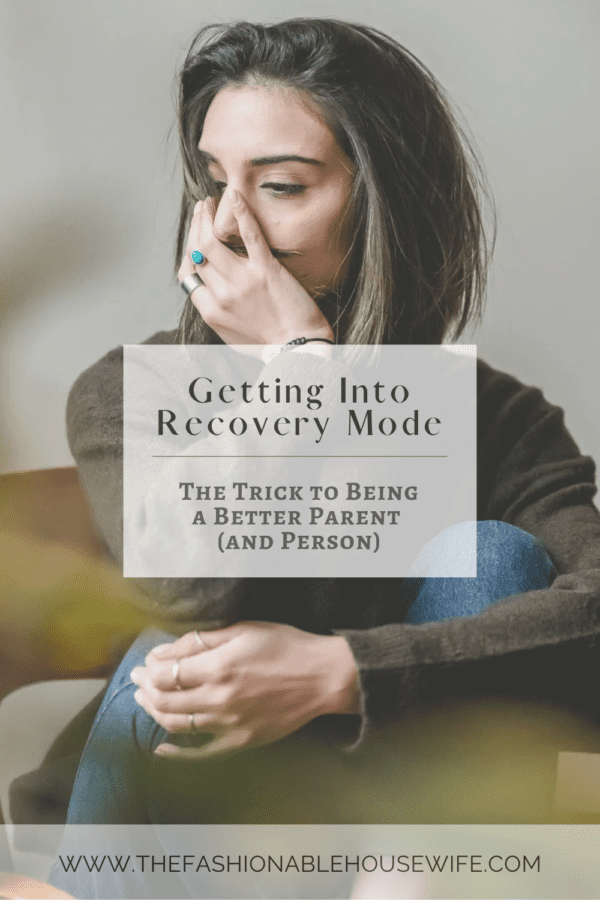
As parents, we all need to figure out the best ways to rest and recharge, but sometimes we either don’t have the time or feel that we’re not armed with the right tools. Stress, whether it’s large or small, is one of those facts of life. When we don’t feel in control, we are going to feel the impact of stress in many parts of our lives.
Stress is also an external force, whether things are causing us to stress about aging, our looks, health, financial stress, or our children. Whenever we feel stressed, we need the right coping tools. Here are some ways to help you get into recovery mode more quickly.
Take It Slow
The speed of life we all go at means we do not necessarily have the opportunity to slow down. We have to remember that recovery is something that should be built into our lives. The fact is that mothers who give birth have a period of recovery or breast augmentation recovery after cosmetic surgery is just as important to ensure that you are ready for the next phase of your life.
Our bodies and brains were designed to face a bit of stress, but, more importantly, have a period of time to relax before we hit the next challenge. We need to take little breaks throughout the day to notice any signs of stress in our bodies. You need to take some deep breaths and ask yourself what is the best thing for you to do right now and move forward with this in a more mindful way.
Walking Outside
Getting outside is perfect for reducing anxiety. But even if you cannot get outside because you’re in a built-up city area you can even look at pictures of calming and serene scenes to help you reduce your anxieties. Studies have shown that even people who saw pictures of trees were able to recover quicker from stress and had slower heart rates.
If you are lucky enough to have a garden, spending a bit of time out there barefoot can help you to lower your stress levels.
Exercising
Exercise is one of those things that has been proven time and time again to help you feel better. Exercise helps your mood and can improve your sleep, but it also has benefits on your mental alertness. Exercise is also proven to lower your blood pressure, so you don’t necessarily feel that sense of tension.
If you feel stressed all the time, it’s going to age you quicker and this has been shown by the telomeres in your cells. Shorter telomeres in the brain are a sign that you are chronically stressed, which will make you feel (and look) older. But moderate exercise a few times a week is a perfect way to protect you from this.
Do Not Forget Your Posture
Your mother may have told you as a child to sit up or stand up straight, but believe it or not, standing in an upright pose can help you to perform better during periods of stress. There’s an amazing TED talk by Amy Cuddy that speaks about the effects of posture, and a lot of people may believe that it’s pseudoscience, but if you stand up tall you feel more confident but the fact is that it has been studied.
Subjects have been tested by being stressed out; those that had sat upright had less fear and were more positive in comparison to people that slouched, but were also less self-conscious. If you feel stressed, stand up and fix your posture.
Smile More
There’s a lot more talk about the benefits of tricking your brain into doing something. The brain, on a physiological level, is not able to tell what is real and what is imagined. This is why something like positive self-talk and therapies like Cognitive Behavioral Therapy has proven to be so popular because they can help us retrain our brain into thinking differently.
But if time is running out and you don’t have the opportunity to do self-talk or to even go through something like CBT by yourself, a quick shortcut is to smile. Even fake smiles can help your body resist stress. A study conducted at the University of Kansas showed that groups that either smiled genuinely or faked it had lower heart rates and performed better under stress.
While the people that genuinely smiled performed better under stress, the lesson is clear; actually making yourself smile can send a message to your brain that will subconsciously influence how you feel.
Looking at Your Stresses From a Different Perspective
This is the most useful tactic in dealing with stress. If we feel that we are never able to recover from stress, we have to switch up how we are looking at the concept of stress. Trying to see your stress beyond mere pressure but more as a challenge that needs to be tackled can do a lot for how stressed you actually feel.
If you start to look at stressors as challenges that you are able to learn from, whether it’s just as simple as learning how to tolerate stress better, this is a very small inoculation that is going to help you in the long run.
It is certainly not straightforward, especially if you are feeling under pressure constantly, but some of these approaches can do a lot either to retrain your perspectives of stress or get into recovery mode. A lot of people just keep going until they cannot. Instead of trying to push through, thinking that you just need to get through the next problem and everything will be okay, think about how you can build in ways to recover throughout every single day.
Whether it’s doing something like box breathing to stimulate your parasympathetic nervous system or actually having peace and quiet for as little as 30 seconds and focusing on nothing, these are great ways to get into that recovery mode that will make you a far better parent and person.




